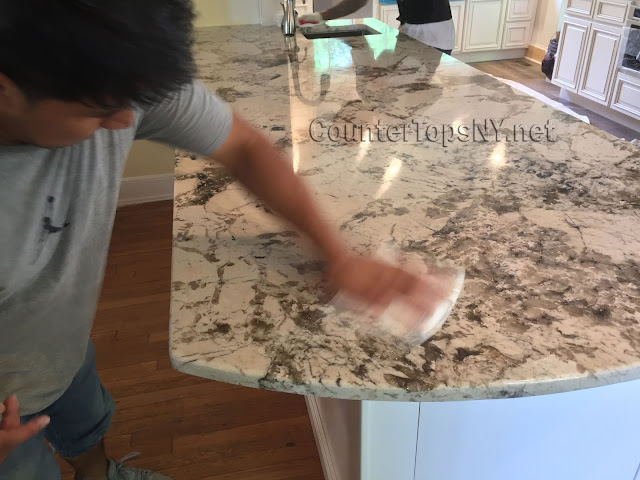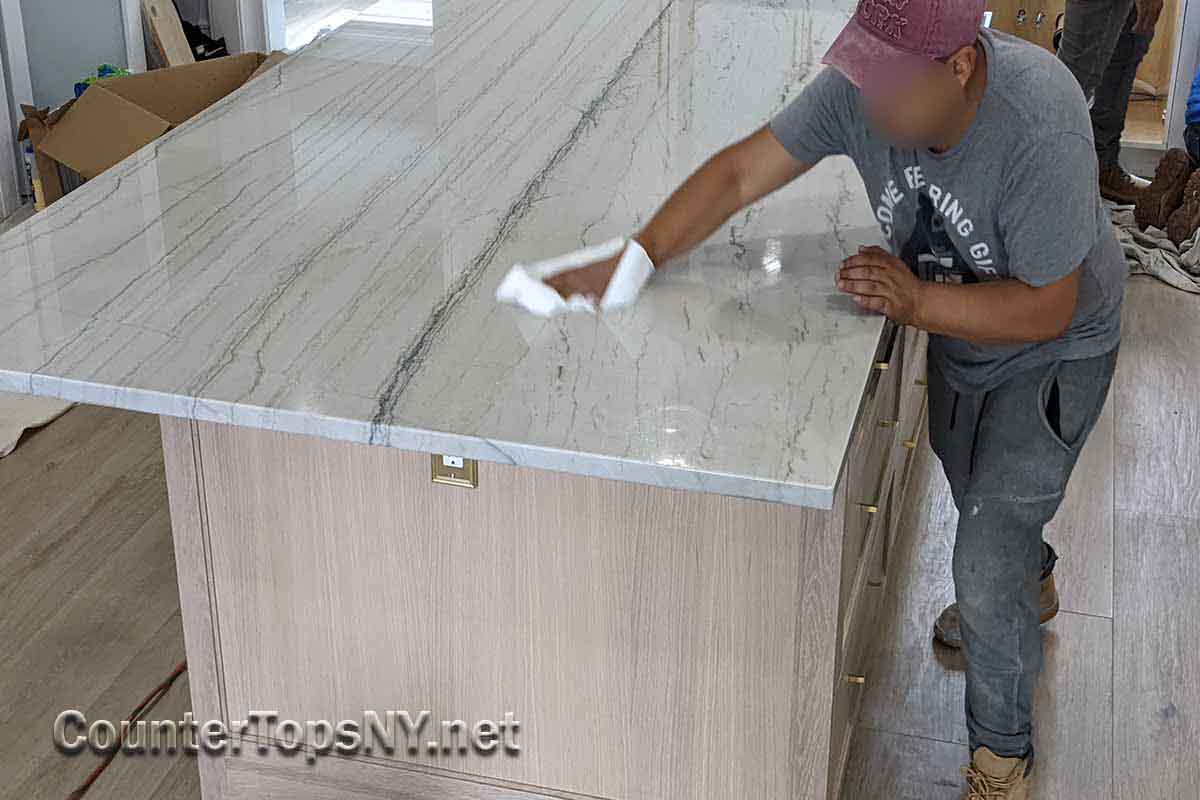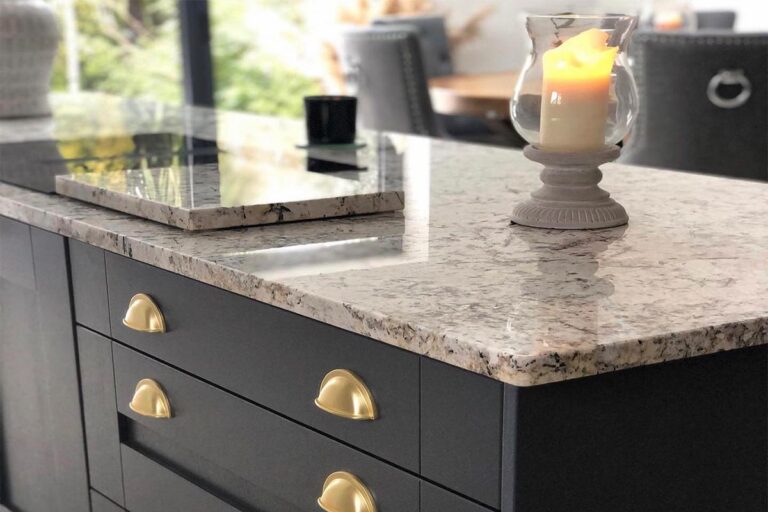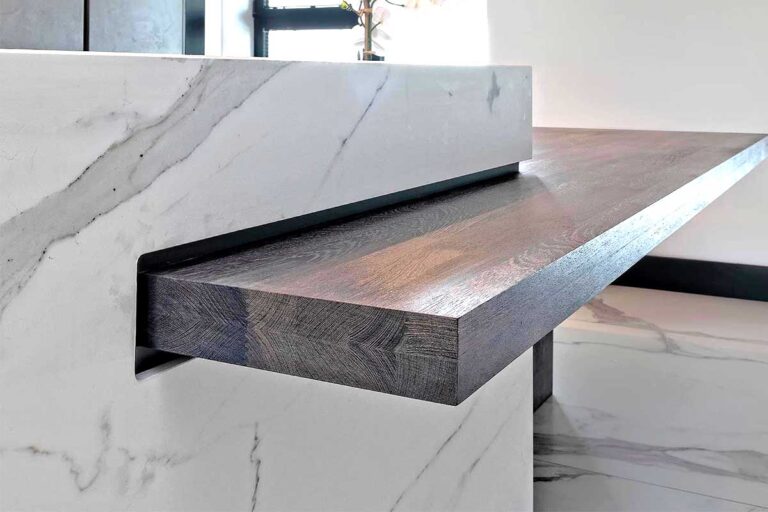Countertop Sealing Service
The kitchen countertop is a surface on top of which a lot happens. The kitchen space sees a lot of activities like dishwashing splashes, slicing of food (fruits, vegetables, and meat), placing of hot pot, working of dough and all sorts of ‘messy’ activities which may leave fluids behind that are later absorbed by the countertop, which may in some way affect the kitchen countertop. The countertop needs to be cleaned and sanitized and left spotless afterward preferably without leaving any residue of chemicals behind.
In the next paragraphs, we will discuss the various aspects of sealing countertop, starting by what it is.

What is sealing?
Sealing is a maintenance procedure that corrects the absorbance of a slab with the help of a substance called a sealer making it stain-proof. It penetrates/soaks into the slab to slow stain absorption. Some other sealers, the top sealers, do not soak in.
One of the most recommended sealants is carbon resin sealer, they provide good protection but they are expensive. Also, we have Siloxane or silane which repel oil lesser. Some of the less recommended are silicone-based sealants or linseed-based sealants. They are the least durable and will need resealing every eight months. There are water-based or solvent-based. A water-based sealer is easier to apply and greener.
It is important to note that sealing has little to do with how shiny the countertop looks, the shiny nature is a result of polishing.
How to test if a countertop needs cleaning?
In general, all kitchen countertops need sealing. Regardless of what some sellers may claim, many granite countertops are better left unsealed.
In order to test whether a countertop needs sealing, leave a few drops of water, oil, or a wet towel on top of your slab for a period of 10 to 15 minutes. If the liquid begins to soak into or stains the slab, the slab needs sealing.
In the case, the liquids don’t soak in or stain the slab, do not go ahead to seal it ‘to be on the safe side. The sealer needs to soak into the slab to be effective. If it can’t, if it doesn’t you’ll end up with an ugly residue. Some sealers can be harmful.

How to seal kitchen countertops?
– Clean the countertop
o Clean of the surface properly with soap or water or any special cleaning agent then dry off the surface with a clean rag. Afterward, wipe the surface with denatured alcohol. Allow the surface to dry for 24 hours and let it come back to its original color.
– Apply the sealer evenly
o Wear gloves and ventilate the area. In the case of solvent-based sealers. They have a very strong scent and vapors. But they do not leave chemicals behind.
Cover the surface evenly with a spray bottle. The entire surface should be damped and not soaked.
– Allow the sealer to absorb into the stone
Consult the instructions on the number of times it should be allowed. Not too long to cause discoloration. Apply a second coat if necessary. If instructions say so. Wipe this over the surface to ensure even application.
– Wipe the sealer
o After 20 minutes or as long as the instruction says, wipe off the remaining sealer. Leaving too much sealer may cause an unattractive haze.
– Leave the counter to rest for 48 hours
According to the instructions, let the slab rest for the amount of time specified. Afterward, the slab will have to ‘cure’ before it is available for use. This amount of time is mentioned in the sealer product manual. It may be 48 hours.
For the best result have a professional do it for you. You are welcome to give us a call at 718-781-5247




